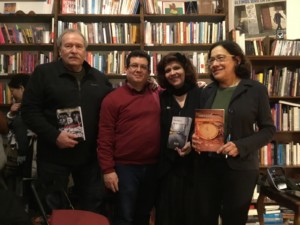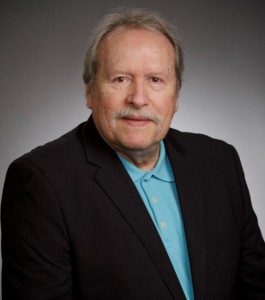PRAIRIE VIEW, Texas (July 13, 2020) – It took Alfredo Fernandez, Ph.D., associate professor of Spanish at Prairie View A&M University (PVAMU), nine years to write his novel, “Domino de Dictadores.” (It was published this past fall by Ilion Verlag Editors in Germany.) The book is part of a trilogy, which is now complete. Fernandez, who started teaching at PVAMU in 2001, shares more about the story, its series, and how they both evolved.
What does “Domino de Dictadores” discuss?
The book, “Domino de Dictadores” (427 pages), is a historical, contemporary thriller about Caribbean-Europe political relations between 1930 and 1961. The main subject is the public and secret relations between four important dictatorship figures, Adolph Hitler (Germany), Rafael Trujillo (Dominican Republic), and Fulgencio Batista, and Fidel Castro (Cuba).
What is contemporary thriller writing?
Contemporary thriller writing looks at the dark side of societies and history, where crimes for personal reasons (money greed or political power) abound. They always come accompanied by intrigues and mysteries to be solved. In their investigation, we find that violence, corruption, and all those things that we would like to keep far from our lives, unfortunately, surround us. Thrillers, both literary and cinematographic, are always popular with readers and viewers.
Why did it take nine years to write “Domino de Dictadores”?
The book began not as fiction but as a research project called “Dios y Trujillo ” (“God and Trujillo”), which won the Alejo Carpentier Foundation’s Reason for Being Award in 1993 (Havana, Cuba). As I began to investigate, I realized that the Trujillo dictatorship in the Dominican Republic from 1930-1961 had roots and deeper connections beyond the rest of the Caribbean islands. It touched Cuba during the Batista and Fidel Castro governments, as well as Germany and Spain, with the fascism of Hitler and [Francisco] Franco during the same time period. That gave me the idea to change it to “Domino de Dictadores” and encompass those other historical figures and countries. Then, the idea arose to add two other novels and rework “Domino of Dictators” as a trilogy.
What went into producing the trilogy?
The chronological order of the trilogy is “Citizen Kane se fue a la guerra” (“Citizen Kane went to war”), “Dominó de Dictadores” (“Domino of Dictators”), and “El condotiero, la domadora y el escritor” (“The condotiero, the tamer, and the writer”).
The sense of time encompasses 1930-1961, beginning in the late 19th century and ending in the early 21st century. I tried to project the historic image of historical figures and events in Cuba and the Dominicana, Argentina, Bolivia, and Guatemala, as well as a much broader global context, including Germany, Spain, Russia, Mexico, and the United States.
These three books, which together contain a little more than 1,300 pages, can be read as independent units. “Domino of Dictators” is the second novel of the trilogy; however, it is the first one that it is now on sale through Amazon.
How do you feel about the trilogy overall?
It has been many years of hard and sustained work, and I am proud of what has been accomplished. Just last month, “Citizen Kane se fue a la guerra” was selected as a 2020 finalist for the Hypermedia Editorial Award. Critics consider it to be a ‘powerful narrative intelligence that carries the past in the manner of a historical amusement park that evokes the wars of a drifting Cuba and the genius of Orson Welles.’
Link to Fernandez’s interview in Spanish:
http://iliadaediciones.com/entrevista/alfredo-antonio-fernandez-frente-a-la-historia-hay-que-ser-humildes/
###
By Holly Beretto


